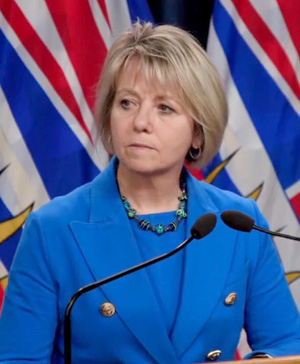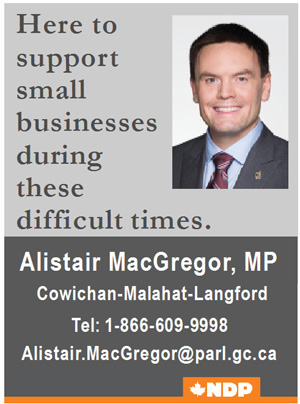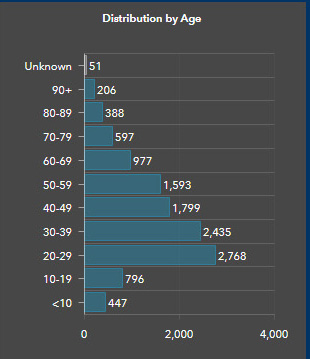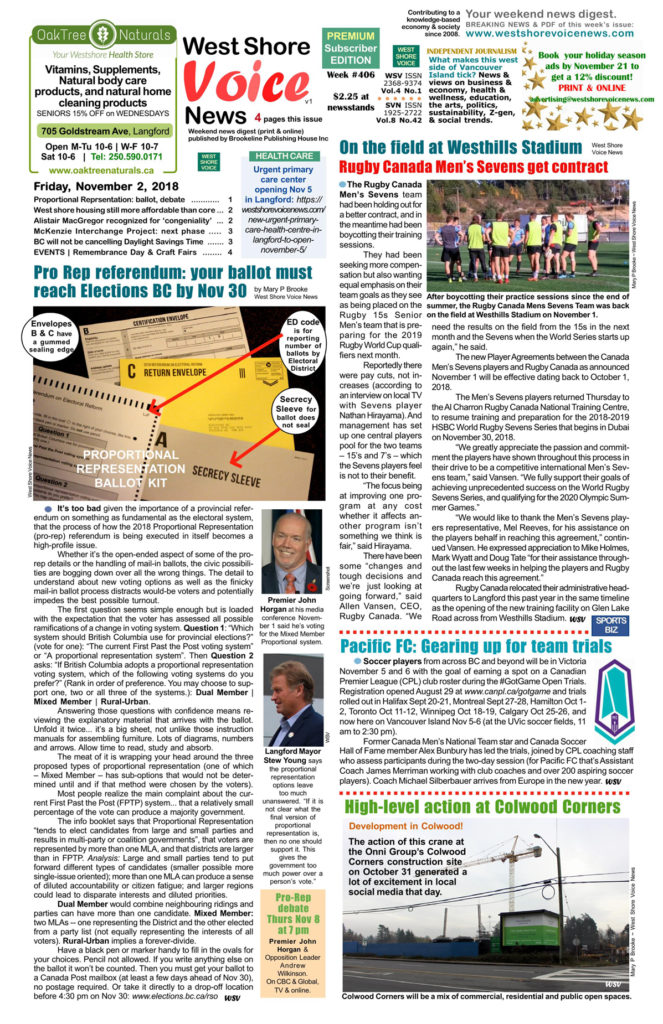Thursday October 22, 2020 | VICTORIA, BC
by Mary P Brooke, B.Sc., Editor | Island Social Trends
Starting today and then every Thursday, the BC Centre for Disease Control (BC CDC) will issue a “more detailed report putting in context the trends over the week or longer”. That will include tables and diagrams. This was announced today by Provincial Health Officer Dr Bonnie Henry.

As is right there in the name of Island Social Trends, that is indeed the approach this publication has been taking to COVID reporting since the beginning of the pandemic. Going beyond the numbers and providing context is the value-add sort of journalism that this publication has built as a direction and style over 12 years.
Many of those pieces can be found in our Editorials section, but also within the various COVID reports posted daily now since COVID media announcements became a regular thing in January, into February, and beyond.
This approach is a courtesy to readers who cannot and should not be expected to follow every detail along the way. People will integrate information into their lives more readily if it is given usable and relatable context.

The name change to Island Social Trends has been very popular. We thank our readers, subscribers, advertisers, contributors and suppliers for their support.
The team here is Mary P Brooke, editor and publisher, Les Oberg server-tech, Chris Gallon web-tech, Kiley Verbowski freelance writer, and others on a consulting basis.
Our publications always follows the trends:
We are different from daily news media, and different again from local municipality-based weekly papers. We have always done some deep-thinking and produced analysis of trends and directions in the socioeconomics of our society and communities on south Vancouver Island.

Analysis is quite often different from editorial, though they can merge and be presented together. Analysis is a ‘think piece’, drawing together pieces of the situation or scenario from various angles, and draws conclusions for the reader to consider.
An editorial makes a case for one or more identified viewpoints. Together, editorial analysis is broader and deeper — showing multiple viewpoints or types of information, and then identifying a viewpoint that the editor stands by as the position of the publication.
Where people in some tightly monitored social media groups mistakenly believe that providing analysis (particularly in the case of politics) is to be editorializing or ‘political’, is to misunderstand the role of analytical discussion. And if a discussion is about politics, that’s fair game for analysis — it doesn’t mean one party/candidate or another is being supported.
During the COVID-19 pandemic we sure have been following the daily details alright, but especially as time has gone on, we have always pulled out the salient points for attentive readers. We were the first to ask about how COVID affects children and highlighting the Multisystem Inflammatory Syndrome in Children (MIS-C) that was first identified and highlighted in Europe, and only later this summer did BC start officially identifying it. Very early on we asked in media conferences about the communal aspect of long-term care being a problem that could perhaps be addressed more creatively.
All the news media in BC has had their thinking caps on during this pandemic, coming up with excellent COVID-related health questions questions for Dr Henry and (pre-election) Health Minister Adrian Dix.
The whole idea of working with data is to produce trends. Otherwise, it’s ‘just a lot of numbers’ to most people beyond those on the inside circle of creating the data.
Tracking the age trends from day one:

Throughout the pandemic we have tracked the age trends, identifying the clusters of ages not just by years, but with insight as to the social network of those ages.
We have never called people ages 10 to 19 ‘children’, but recognized them as youth, tweens or teens. We morphed past “under age 10” to using relatable wording such as “newborn to age nine”.
For the adult groups, we have in recent months segmented out the 60-to-69 year old cohort as “still working, still community-active”, rather than lumping people in their 60s in with “elders” who encompass a wide range of levels of health, mobility, lifestyle and place of residence.
By following the age trends closely, we could see early on the rise in cases of 20-to-39 year olds, and when the numbers started to rise in older working adults. We’re keeping an eye on the COVID case-numbers of kids in school, as relates to the timeline of back to school.
The Island Social Trends timeline:

In 2008-2010 this publication started in print as a quarterly magazine called MapleLine Magazine.
From 2011-2013 we served the daily news reader audience in Sooke with a weekly print and online publication called Sooke Voice News.
In 2014 we shifted to covering the burgeoning west shore communities of Langford and Colwood with a view as well to View Royal, Metchosin and surrounding regions, under the banner of West Shore Voice News with already since 2018 a drop-down menu section about Social Trends.
In all cases it wasn’t a matter of covering every single event or detail but to illustrate trends and provide ‘explainers’. This is all about understanding our communities better, and our ourselves and options in relation to the broader community and society.
Youth in particular wanted the digital version only, but we appreciated keeping the weekly print edition in coffee shops, rec centres, and other community locations right up until “COVID killed the print edition” with the combined March 13 and 20, 2020 print edition being our last in that format.
Emerging with Trends in the name:
Non-stop COVID pandemic coverage kept us busy on the journalism side of things between February and the end of summer. In mid-August 2020 we emerged as Island Social Trends — entirely online here at www.islandsocialtrends.com with a view to all of BC, with a focus on south Vancouver Island. Again, it’s about the trends. We focus on health, education, politics, business and economy, and communities — these are the parts of life and living that impact us all, pulling together the threads that make better sense of things.

We go through a lot of detail to surface with the trends analysis and reports. Sometimes our interviews with decision-makers in the community are not turned around immediately for a one-off article. The content is sometimes used ‘on background’, as part of weaving the larger picture. Details can and will always be available.
In that BC CDC has followed our lead, we ourselves have been a trendsetter in the style and format of journalism — especially this year during COVID, but going back through many of our editorials and analysis pieces right back to the beginning of this publishing venture in 2008.
===== About the editor:

Mary P Brooke, B.Sc., Cert PR is the editor, publisher and creator of Island Social Trends (and all its predecessor renditions). She holds a B.Sc. in nutrition science (with second major in sociology and community education). Mary co-founded the Professional Editors Association of Vancouver Island (PEAVI), wrote the inaugural 36-week curriculum for the ‘Writing for Business & Journalism’ program at the Western Academy of Photography in Victoria in the early 1990s, was president of a volunteer HTML-training group in the mid-1990s, and taught journalism to new young writers under her own MapleLine Journalism Program banner. Writing and editing in ‘plain English’ is a basic plank of her contribution to journalism as well as her easy way of expressing complex thoughts. Ms Brooke holds the McGeachy Prize in Journalism from the University of Saskatchewan. Mary’s full Certificate in Public Relations included studies in mass media well before social media. Island Social Trends is based out of Langford, BC, as published by Brookeline Publishing House Inc (writing, editing and/or publishing a wide range of documents including business documents, newsletters, magazines, books, speeches and web portals since 1995).

===== To request archive copies of any previous issues of MapleLine Magazine, Sooke Voice News, West Shore Voice News or Island Social Trends articles, please email to subscriptions@islandsocialtrends.com or phone 250-217-5821. Identify your request, and respond to the invoice with payment by credit card or e-transfer.



